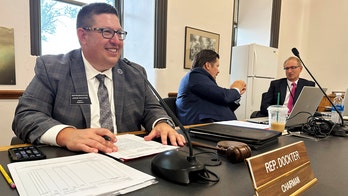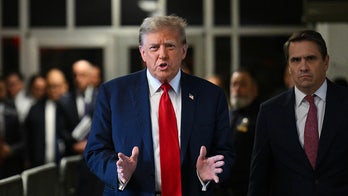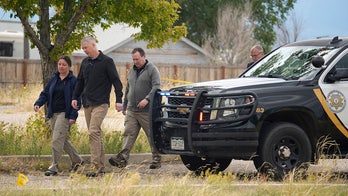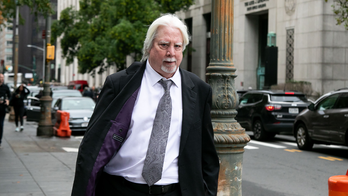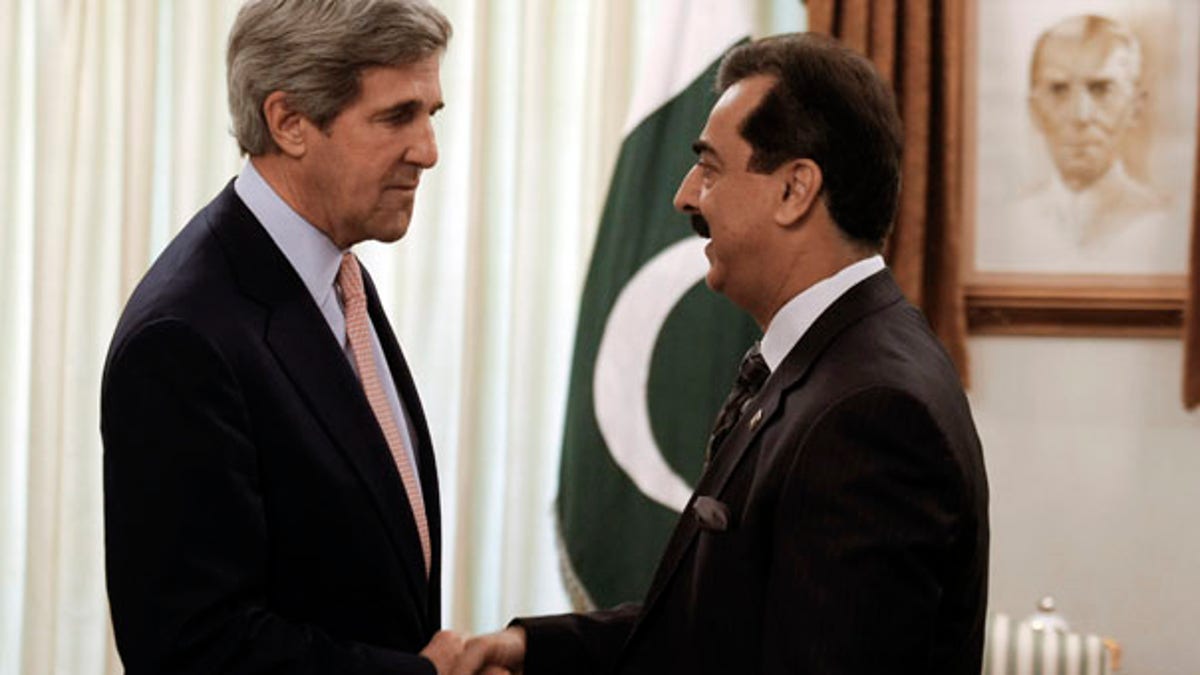
Monday: Sen. John Kerry meets with Raza Gilani prior to their official talks at the prime minister's residence in Islamabad, Pakistan. (AP)
The tail of the disabled Navy chopper left behind in the Usama bin Laden raid in Pakistan will be handed back to the United States sometime Tuesday, U.S. Sen. John Kerry announced Monday during a trip to Islamabad.
The senator, the highest-ranking U.S. official to visit Pakistan since the May 2 raid, also issued a joint statement with Pakistani officials saying the two nations have agreed to work together in any future actions against "high value targets" in Pakistan.
Relations between the two countries have been badly strained since U.S. officials went into Pakistan covertly to take down bin Laden, not telling Pakistan out of concern the Al Qaeda terror leader would have been tipped off.
Pakistan's parliament issued a resolution on Saturday calling for an investigation into how the raid went off without Pakistan's knowledge and demanding that the U.S. not conduct any more drone strikes in the country.
It also threatened to stop NATO and U.S. trucks from using its land routes to ferry supplies across the border to troops in Afghanistan unless Washington does not stop missile attacks on its territory.
Kerry said that secrecy was tantamount to success and not a slight against Pakistani officials.
"In 2001 we had trapped Usama bin Laden and maybe a thousand of his fighters in the mountains of Tora Bora. Regrettably, the decision was made not to send in our own troops to capture him. So he escaped to Pakistan," Kerry said.
"Faced with a second chance to capture Usama bin Laden, no American president could conceivably have afforded to take even the slightest chance that he might again slip through our hands," he said, adding that his goal in traveling to Pakistan was "not to apologize for what I consider to be a triumph against terrorism of an unprecedented consequence."
Kerry said as part of the effort to enhance Pakistani counter-terrorism cooperation with the U.S., the tail of the helicopter that went down the night U.S. Navy SEALs raided a compound belonging to Usama bin Laden in the Northwestern town of Abbottabad.
"Tomorrow the tail of the helicopter will be returned to America and we'll take possession of that in a coordinated operation that will take place with them. That's step No. 1," Kerry said.
Kerry, the chairman of the Senate Foreign Relations Committee, arrived in Pakistan late, and started his visit by handing army chief Gen. Ashfaq Parvez Kayani a list of U.S. demands, a Pakistani government official said on condition of anonymity. On Monday, Kerry met with Pakistani Prime Minister Yousuf Raza Gilani and was slated to see President Asif Ali Zardari.
The U.S. has long pressed Pakistan to take action against several powerful Afghan Taliban factions sheltering on its soil, and bin Laden's files captured by the SEALs are said to have contained a treasure trove of useful information to hunt down the terror group's key leaders.
The leader of the Afghan insurgency, Mullah Omar, is widely believed to be in the southwest Pakistani province of Baluchistan, and allegations he is being harbored by the country have been strengthened since the death of bin Laden.
Bin Laden is believed to have lived in the large compound for years, not far from Pakistan's premier military academy. Pakistani civilian and military leaders deny knowing where bin Laden was and have called the U.S. raid a violation of their country's sovereignty.
Kayani told Kerry his soldiers have "intense feelings" about the raid, in apparent reference to anger and humiliation here that Washington did not tell the army in advance about the helicopter-borne raid.
Zardari's office, meanwhile, said U.S. Secretary of State Hillary Rodham Clinton called him Sunday to discuss the raid's fallout in Pakistan. Clinton has spoken of the need to keep strong ties with Pakistan, and stressed there's no evidence yet its leaders knew of bin Laden's whereabouts.
While in Afghanistan on Sunday, Kerry made it clear to reporters that patience was running thin in Washington, where many have long suspected that Pakistan aids and abets Afghan Taliban and other militant groups. Many in Congress are saying that Washington should cut aid to the nuclear-armed country, whose cooperation is considered vital to ending the war in Afghanistan.
"The important thing is to understand that major, significant events have taken place in last days that have a profound impact on what we have called the war on terror, a profound impact on our relationship as a result," Kerry said.
He added that "we need to find a way to march forward if it is possible. If it is not possible, there are a set of downside consequences that can be profound." He did not elaborate.
Pakistan's failing economy desperately needs American and other foreign aid. Since 2002, Pakistan has received more than $20 billion from the U.S., making the country one of the largest U.S. aid recipients, according to the Congressional Research Service. Nearly $9 billion of that has been reimbursements for Pakistan's costs to support the U.S.-led military campaign in Afghanistan.
In a sign of how politically hot the raid has become, the government of Punjab, Pakistan's wealthiest and most populous province, announced Monday that it wants to stop taking foreign aid.
Punjab is run by a party that is in the opposition on the federal level, and Punjab Chief Minister Shahbaz Sharif said the decision by his Cabinet still needs approval by the party.
It's also unclear how much foreign aid goes directly into Punjab's government coffers -- much of it is funneled through aid organizations or the federal government. So the announcement could be largely political theatrics.
It is time for Pakistanis to "insist on dignified and honorable relations with the superpowers and refuse to compromise our national interests, freedom, and sovereignty," Sharif said in announcing the move.
Fox News' Dominic Di-Natale and The Associated Press contributed to this report.

